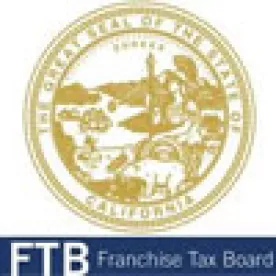Over a year ago, I wrote about an Iowa corporation, Swart Enterprises, Inc., which operates a 60 acre farm in Kansas. Swart has no physical presence in California. It owns no real or personal property in California. However, Swart had invested $50,000 investment in a manager-managed California LLC. Swart’s investment represented an ownership interest in the LLC of approximately 0.2%.
Based on this ever so tenuous connection to California, the Franchise Tax Board claimed that Swart was doing business in California and owed $800 in minimum franchise tax pursuant to Section 23153 of the California Revenue and Taxation Code. Swart paid the tax and penalty and then sued the FTB. Earlier this month, Superior Court Judge Kristi Culver Kapetan granted Swart’s motion for summary judgment.
In her ruling, Judge Kapetan noted that the FTB’s regulations define “doing business” as “actively engaging in any transaction for the purpose of financial or pecuniary gain or profit.” 18 CCR § 23101. Probably to the surprise of no one other than the FTB, she found that passively holding an investment “does not appear to constitute ‘doing business’ or actively engaged in a transaction for gain or profit.”
The FTB, however, argued that “doing business” under Section 23101 includes “the purchase and sale of stocks or bonds”. Judge Kapetan, however, correctly observed that while a membership interest in an LLC may be “security” as defined in the Corporate Securities Law, it is not a stock or bond. The FTB’s position was further undermined by the fact that Section 23101(b) provides “[t]he mere receipt of dividends and interest by a corporation and the distribution of such income to its shareholders does not constitute ‘doing business.‘”
Judge Kapetan also rejected the FTB’s argument that the LLC had elected to be taxed as a partnership. In the FTB’s view, this made Swart a partner for all tax purposes. She, however, was persuaded by Amman & Schmid Finanz AG (1996) 96-SBE-008, 1996 Cal. Tax LEXIS 62 (“Amman“):
The SBE [State Board of Equalization] in Amman held that foreign corporations were not subject to the minimum tax of section 23151 where their only connection with California was limited partnership interests in partnerships engaged in business in California, from which they received distributive shares of California sourced income of those limited partnerships. The SBE based its decision on its application of the law of limited partnerships in California. It noted that limited partners were inactive participants in the partnerships and, therefore, not “actively engaging” in profit-seeking transactions. As limited partners, the foreign corporations had no interest in specific limited partnership property, had no right to participate in partnership management, were powerless to bind the partnership, and were not liable for the obligations of the partnerships.
The FTB’s case (and bona fides) was undermined by the fact that it had previously agreed with Amman in its Technical Advice Memorandum (“TAM”) 200658 (Dec. 22, 2000). The FTB reversed its position in the midst of the litigation when it issued its Legal Ruling 2014-01, an action that I criticized in FTB Issues Legal Ruling Addressing Filing And Franchise Tax Obligations of LLCs And Their Members. Because the FTB did not use formal rulemaking to change its position, the courts should accord it no deference whatsoever. In any event, it should not be applied retroactively.
[Note to readers - this case is a trial court decision, it may be appealed and isn't binding precedent.]



 />i
/>i
